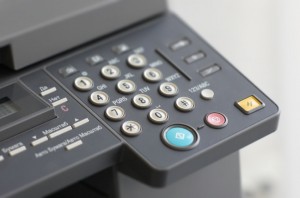 Prime Office Space has compiled a series of guides to help you with all your Office Requirements needs including Office Planning, Office Equipment, Communications Equipment, Office Furniture, Computer Software, Computer Equipment and Office Supplies.
Prime Office Space has compiled a series of guides to help you with all your Office Requirements needs including Office Planning, Office Equipment, Communications Equipment, Office Furniture, Computer Software, Computer Equipment and Office Supplies.
This week we will be looking at:
Office Equipment
Office equipment is an integral part of any business. Before choosing your office technology or hardware, you need to consider the following:
• Choose the right printer equipment for the volume of printing material your business requires. Inkjet printers are low-cost, and provide good quality black and white and colour prints, whereas laser printers are more expensive because of their speed and quality of printing. Do a thorough market research a select a reputable brand that can meet your business needs. Reputable doesn’t necessarily mean expensive. You may find state-of-the-art technology at a low cost.
• For copiers, it is important to consider the value for money in terms of time. If your copier is slow and you constantly outsource promotional material and sales brochures at a high cost, buy a new copier that can print in colour and save money. Other things to consider are response time (how quickly the machine warms up), volume usage and paper handling (paper capacity). Ideally, a good, reliable, low-cost copier should be able to handle a wide variety of paper sizes and index cards (versatility).
• Fax machines have become all-in-one machines as many of them are also printers, scanners and copiers. Make sure to choose a reputable brand with a quick and reliable service, especially if you work with an all-in-one machine.
• When purchasing hardware, ensure compatibility with existing systems. Ideally, all desktops, laptops and computer peripherals should be the same brand to facilitate service. Additionally, an upgradeable hardware will allow you to add more memory in your computer if necessary.
• When purchasing software, it’s better to select software products with 24/7 support. Should anything go wrong in the installation or the compatibility with your existing operating system, you will able to contact the vendor and get technical assistance
• Select a reliable vendor and stick with them. Changing vendors may cost you time and money. In contrast, building a solid relationship with a reliable supplier will mean better service, better deals and timely delivery.
• Proper maintenance and support is very important. Make sure you have a warranty protection or a service contract to guarantee your equipment won’t be out of service and/or commission for long.
In conclusion, selecting the right office equipment while staying within budget requires good knowledge of the business needs as well as of technological advancements. The best thing to do is to consult the IT department and get the office equipment that can help you improve your operating results over the next years.
Next In The Series: Communications Equipment

